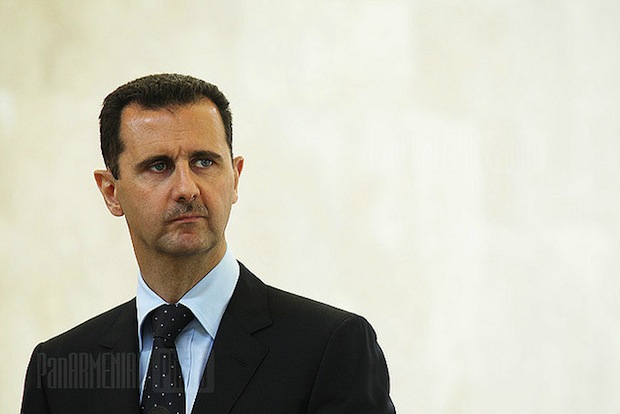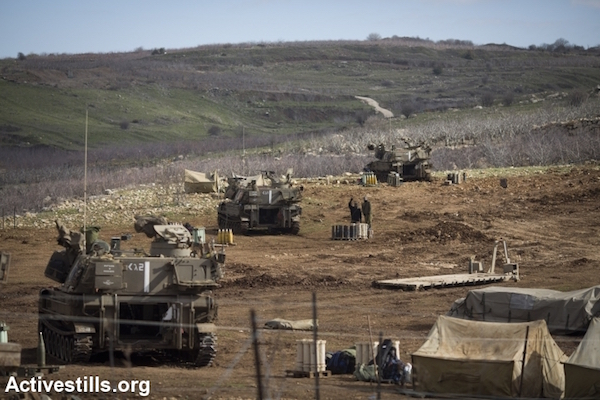It is time to boycott all Palestinian leaders in Israel who support Assad’s war crimes or do not publicly take a stand against them.
By Marzuq Al-Halabi

There is not much left to say about Aleppo. But there is still much left to say about the campaign of destruction of the city. The disaster befalling the city has many faces, some of them reach me, in my office, especially as the descendent of a family who lived in Kufr Rum, one of the small villages surrounding the city. Every aspect of the destruction deserves its own comment:
1. According to reports coming out of Aleppo, a massive campaign of ethnic cleansing is taking place in the eastern part of the city, under the guise of humanitarian help. The Sunni population is being uprooted and sent to hell, after four years of living through the murderous attacks by the regime, Russia, Iran, and 50 well-armed militias under the control of Hezbollah leader Hassan Nasrallah and Ayatollah Khamenei. Ethnic cleansing also took place in many other places in Syria — in Al-Qusayr near the border with Lebanon, in Darayya near Damascus, etc. Ethnic cleansing is always accompanied with massacres, whether out in the open or the kind in which mass graves are unearthed in the days or weeks to come. According to reports, the forces fighting on behalf of the regime have “no God,” and are massacring the armed rebels and the civilian population in order to sow fear and force them to “flee willingly.”
2. It is now obvious that Bashar al-Assad has become a tool in the hands of two powers: Iran, which is looking for a direct passage to the eastern shores of the Mediterranean — in order to ensure a Shiite presence in a Sunni-majority area (and as part of a stated plan whose goal is to control strategic areas near the sea in the region) — and Russia, which has adopted a brutal doctrine vis-a-vis the countries and nations that surround it. Both these powers, along with China, have laid the diplomatic groundwork for the atrocities that we have seen in Syria since 2011, in which they have taken an active role. This has paralyzed the UN Security Council, and subsequently created the conditions for the massacres we are seeing in Aleppo.
3. The tragedy of Aleppo is an expression of the helplessness of the contemporary world and its institutions, specifically the Security Council. Not because of the institutions themselves, but because the international system is rapidly changing: in the near future states will disappear, appear, break down, and change their borders. All this will depend on waves of refugees, additional ethnic cleansing, and wars. And let us not forget that the United States and the West are here only to preserve their interests. A world system in which the strategies of the major players are constantly changing is uninterested in utilizing institutions that now seem irrelevant. The United Nations is unable to even send basic humanitarian aid to Aleppo or any other cities. And if aid is transferred, it is usually through Assad’s people and after large payments to the murderers.
4. Turkey, Assad’s neighbor to the north, have shown exceptional acrobatic skills in everything having to do with Syria. After threats of intervention, the only thing Turkey ended up doing was buying oil and gas from ISIS, while hindering attempts at establishing a Kurdish entity in north Syria, which will form the base for a future Kurdish state. Turkey ended up making up with Russia, turning into the middleman between the rebels and the armies besieging Aleppo.
5. Saudi Arabia, which is embroiled in its own war in Yemen, was also exposed in its impotence vis-a-vis Russia and Iran. The state, which claims to lead the Arab world, which betrayed the Sunnis and the rebels. The same goes for Qatar, which proposed ruses, propaganda, and money. Beyond that? Nothing. Saudi Arabia’s inability to act is an expression of the Arab world’s helplessness.
6. Official Israel acted according to the rules of the game. If I were in its place I would do the same — I would take advantage of the situation in Syria to weaken my enemies and strengthen my operational and strategic advantage in the region. Israel acted rationally, even taking in hundreds of wounded Syrians and sending humanitarian aid to areas close to the border. Thus, my criticism is largely of the Arab leadership in Israel. Many leaders in these political circles support Assad’s massacres, ethnic cleansing, and the bombing of entire cities. Of course, they take this position for many reasons. Yet it seems strange coming from a people that faces oppression and struggles against racism and occupation. There are people who danced on their roofs when the forces of evil entered Aleppo’s eastern neighborhoods, or when Hezbollah massacred the residents or Al-Qusayer, uprooting them from their homes.

These leaders are doing all they can to express their joy over the success of the “Arab resistance camp led by the Syrian army.” On the other hand, many Jewish Israelis have expressed their disgust at the massacres of the Butcher from Damascus, calling for Israeli intervention to stop the atrocities. Among them were those who cannot help but enjoy themselves as they watch Arabs massacre one another. I call to boycott all organizations and leaders who support Assad or who have not taken a clear stance against the war crimes that he commits on a daily basis against his own people. Syrian blood is worth no less than Palestinian blood. Syrians’ right to human dignity and freedom does not take away from Palestinian rights in Israel, or anywhere.
7. Aleppo is, in the end, another chapter in the story of Syria — of the region itself. The massacres taking place as I write these lines are a tragedy that expresses a number of qualities of human kind, and specifically the ability to let these atrocities take place only to look back and atone for our sins in retrospect. To come to conclusions, to write books and establish museums in memory of those who were massacred. Aleppo will be yet another cleavage in the history of humanity, a harbinger of massacres to come. No one can stop the wheel, because those who spin it are too strong. Because the God who turned away from the genocide of the Armenians, from the Holocaust, from the Bosnian genocide, from the Tutsis, and the war crimes of the Syrian Civil War — he no longer lives here.
Marzuq Al-Halabi is a jurist, journalist, author. He writes regularly for Al-Hayat. This article first appeared in Hebrew on Haokets. Read it here.

